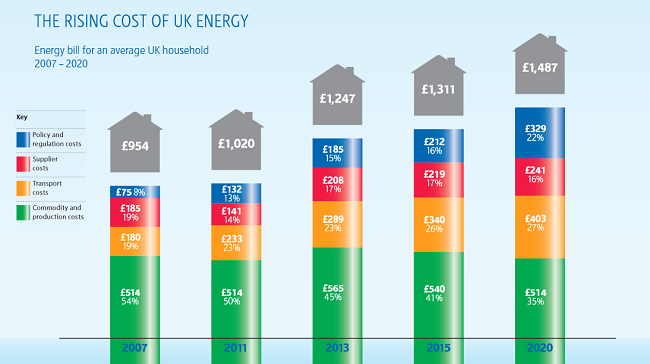Rates for electricity from Solar PV are going down rapidly (halved in 2 years)
The cost of producing the panels has halved, which technically means the electricity generation is less, except.
No battery solution has yet to be invented now or on the horizon that will present a cost effective solution, so PV goes into the grid, most of which is lost or unused, and still requires those nasty gas and cola power stations.
So yea, it has gotten cheaper to produce power from PV, if you simply ignore large parts of the costs.
Lolz.
while rates for Electricity from gas are going up quickly.
Gas prices are falling, and will fall when people pull their finger out about shale gas.
Costs are also rising due to carbon taxes.
At some point there will be a crossover when renewables become cheaper than electricty from gas
If by renewables you mean wave power, possibly, solar and wind still require "standard" power stations.
but if we don't invest in renewables
I agree, all the technical advancements in modern history have only come about by governments throwing money around.
/sark



